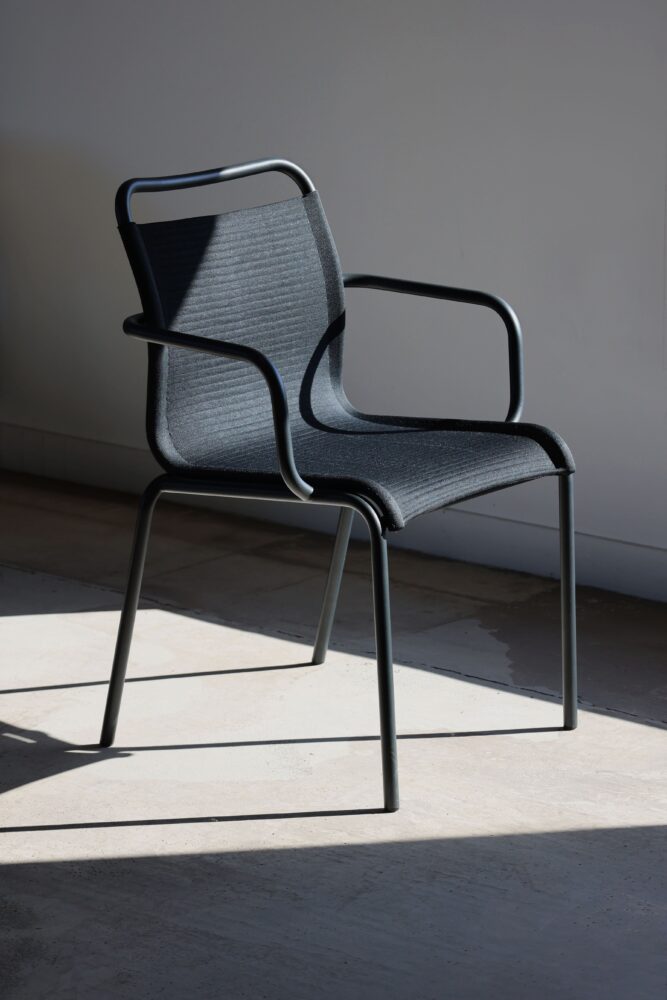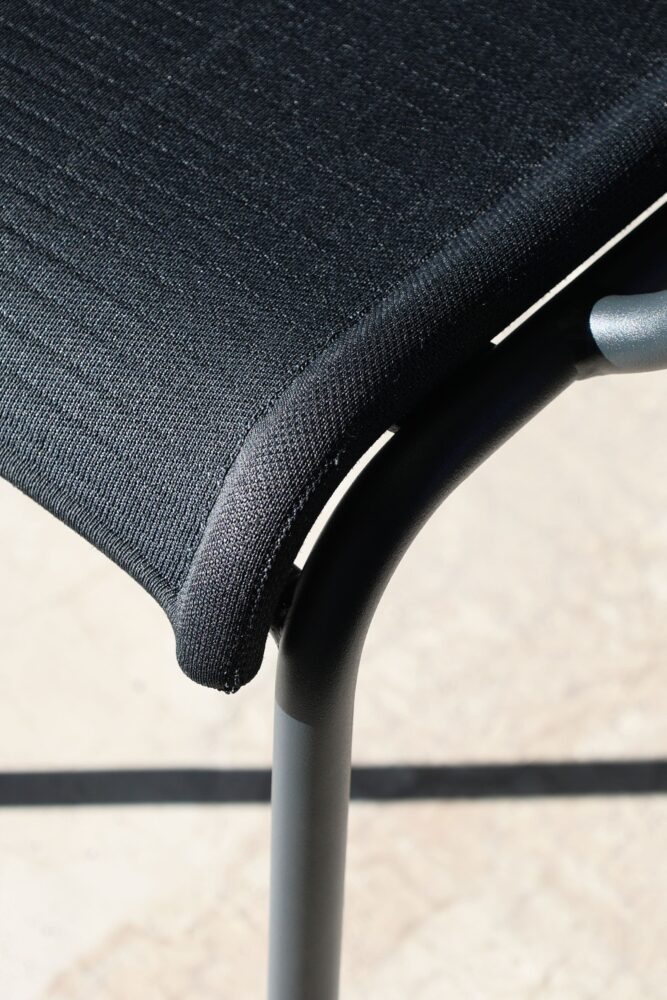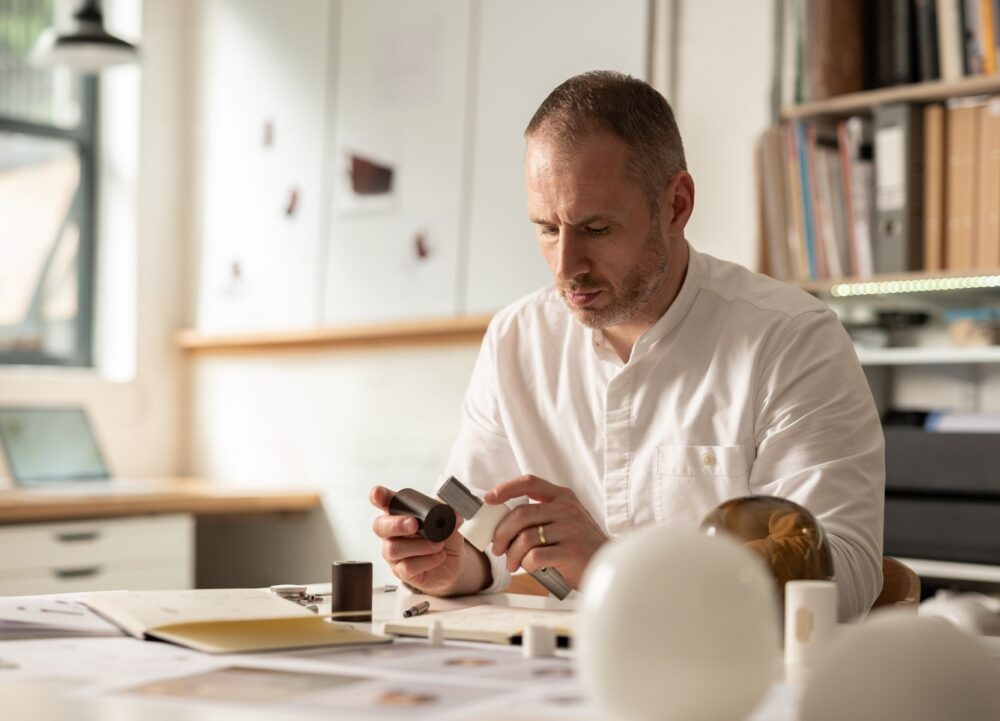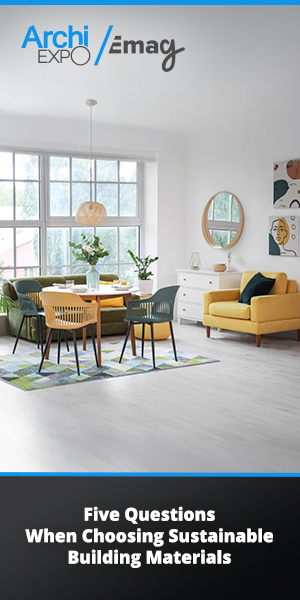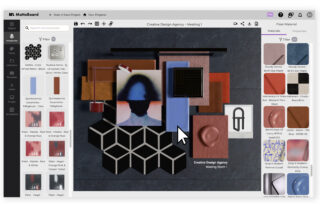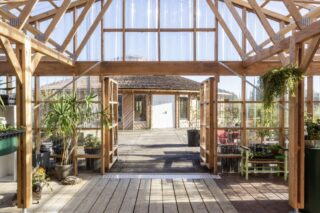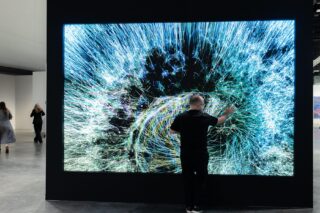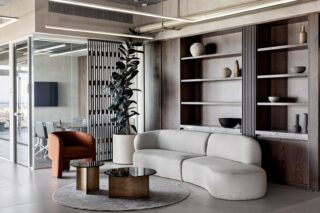The British designer David Irwin is known for his work with wooden furniture as well as with lighting and textiles.
Born in 1986 in Northern Ireland, where he was raised, David Irwin moved to the northeast of England in 2004 to study Three Dimensional Design at Northumbria University. After graduating, he completed a fellowship in the Designers in Residence Programme at Northumbria’s School of Design in 2010 before establishing his design studio in Newcastle upon Tyne in 2011. He is currently an assistant professor at the university.
Historical Roots: Shipbuilders of the Titanic
“Design and wood building have been present the whole time, not only in my life but in my family. My father did not work with wood for a living, but he had a tiny wood workshop in our house. I loved playing there. My great-great-grandfather was a cabinetmaker. He worked at Harland & Wolff, the shipbuilders who built the Titanic, in Belfast. He most likely worked on the Titanic. My brother works today in a related field, interior design,” David Irwin told ArchiExpo e-Magazine.
Irwin’s connection to wood surely supports how he communicates a direct objective or idea through a piece of furniture. By using the ‘epaulette en passant’ detail with a skinny frame in the first commercial piece he designed, Jed, he was already working on the concept of small living. Designed in 2007 and picked up by Habitat in 2008, Jed received its name from Jedburgh, where the wood was sourced from for the prototypes, now produced in oak. It achieved the New Designers Peter Walker Award for innovation in furniture design in 2007.
“I think the simplicity was present at the beginning of my production already. It has evolved and been refined. Over time I got a better understanding of processes and materials, so it all came together.”
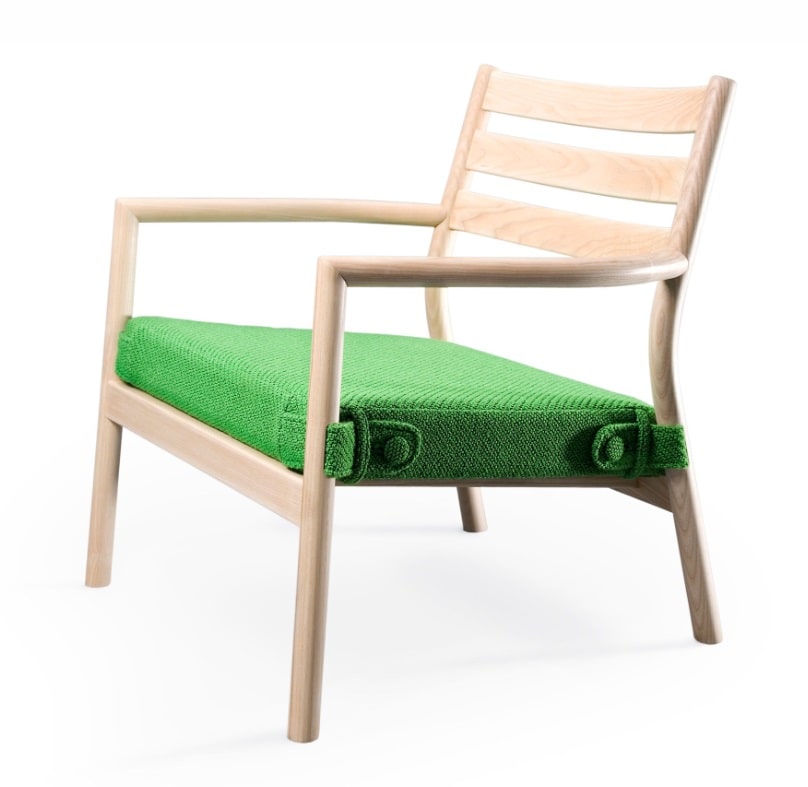
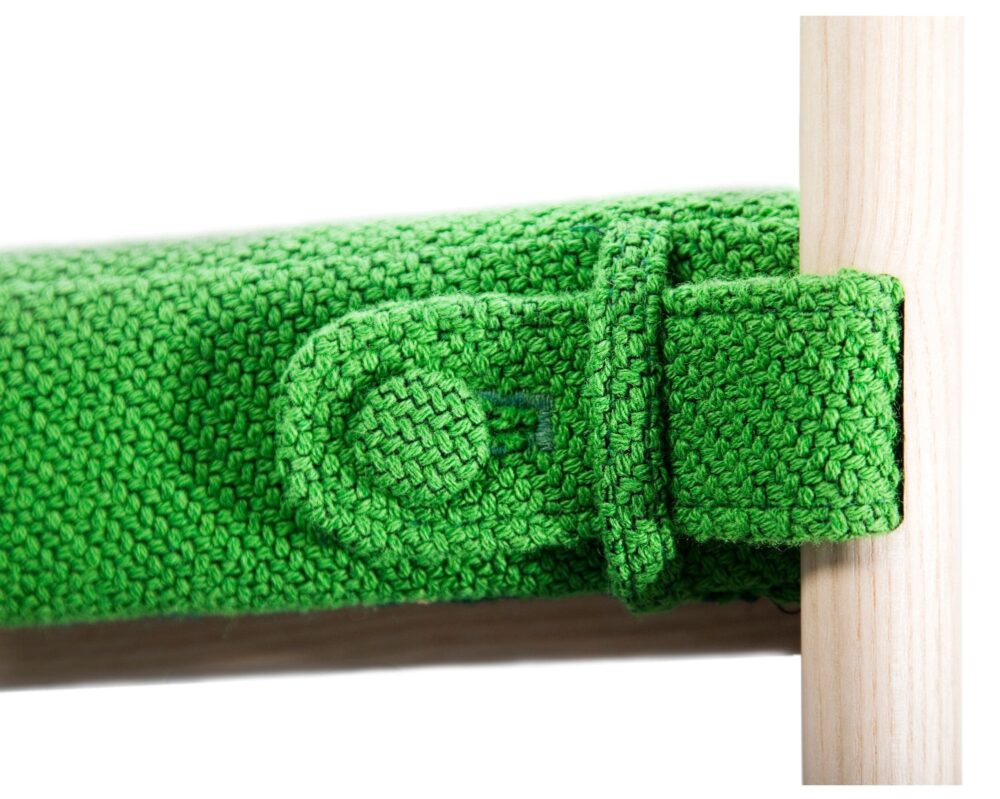
Circular Design & Long-lasting
Sustainability has always been at the forefront of Irwin’s work.
“The Jed chair, my first piece, had very simple cushion components, as I didn’t want to create a traditional piece of upholstery, which is quite hard to disassemble and break into different components—not to mention that materials used in more traditional upholstery, such as polyurethane foam, are not very good for the environment. I’ve always had a sort of aversion to things that don’t break down easily and aren’t designed with circularity in mind. I am trying to work more and more with companies who share this same vision.”
One of these companies is fabric specialist Camira, which manufactures technical knit used in office chairs. It has a zero-waste process and only uses recycled materials—therefore, no virgin oil-based polymers in the textiles.
“For the last three years, I have been working on a self-initiated project to develop a bioplastic for injection-molded furniture. That is a very difficult thing to do, but we have been making some good progress in it and created a proof-of-concept sample. It is still a challenge to scale this up and bring it to the realm of commercial viability, but I am running this project alongside my main work and have as an end goal to get a chair made with that bioplastic.”
Textile Adventure: A Learning Curve
Irwin’s first “adventure” in the textile realm took place in 2019, in collaboration with Bute Fabrics. The Identity and Strata collections are inspired by the Island of Bute, in the south of Scotland, and intricately celebrate the company’s cultural heritage.
“I enjoy exploring new processes and different manufacturing techniques. Learning something new, a new discipline. I knew Bute Fabrics very well, as I used their textiles on my furniture items. Then, they asked me to do the collections with them and I jumped at the chance. I’ve always loved working with textiles but I never had the chance to design them or be involved in that side of things. It was a real learning curve, but I thoroughly enjoyed the work and the research.”
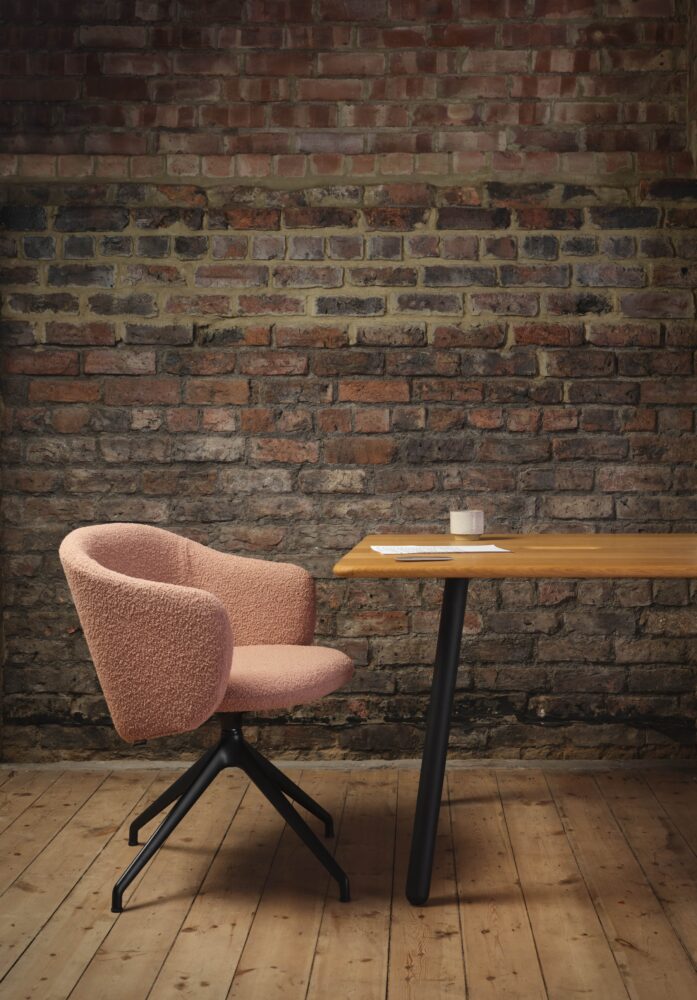
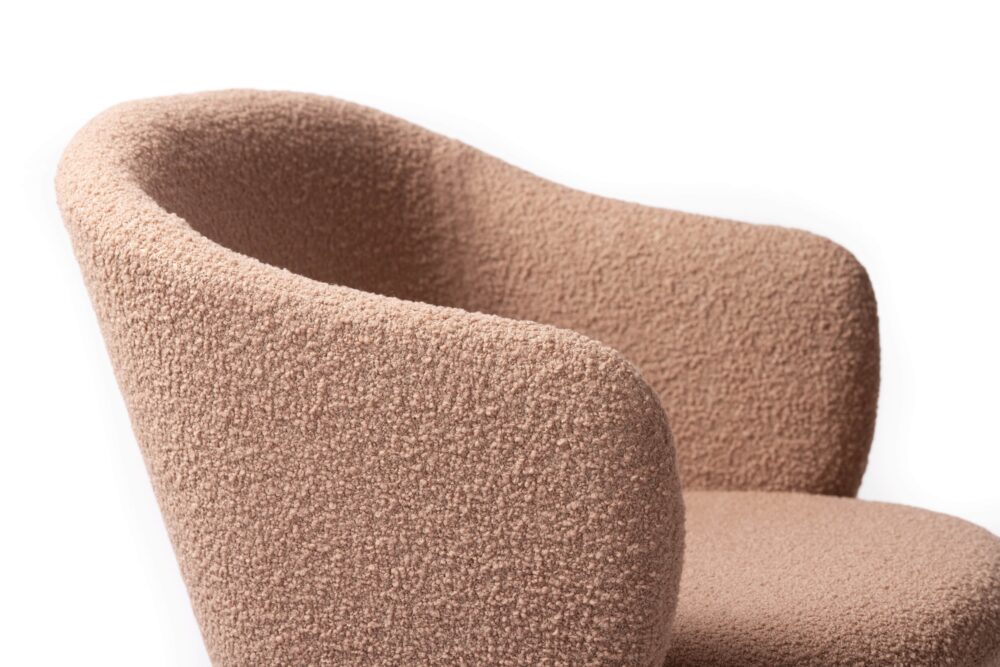
Simple Pendants & Sculptural Lighting Pieces
Irwin’s Oslin lighting collection for Heathfield & Co was born when one of the owners of the company saw his furniture production, liked it, and invited him to create a collection for them.
“I had done some lighting in the past and enjoyed it. This time, however, I employed a process that was new to me, the lost wax casting process. Heathfield & Co had some gaps in their collection that they wanted to fill, and it was important to cater to both scales—that of individual, simple pendants and that of chandelier-like, more sculptural pieces. We had to cast the joints of this modular system without making them too chunky or large. It’s a process used a lot in the making of airplane components, as they need to be very strong but also very light.”
Launched in September 2022, the Oslin collection was awarded the Design Guild Mark in 2023 in the lighting category. In 2024, Irwin and Heathfield & Co launched the Oscar collection, a natural evolution of the first collaboration. Named Oscar, it employs the same mouth-blown glass shade from the Oslin range but consists of individual pendants and linear systems only and introduces walnut wood accents paired with simple and sleek bronze metalwork.
And, just like with the Oslin collection, every Oscar fixture is hand-assembled, and all components can be disassembled for easy repair, replacement, or recycling, ensuring that beauty and sustainability go hand in hand.
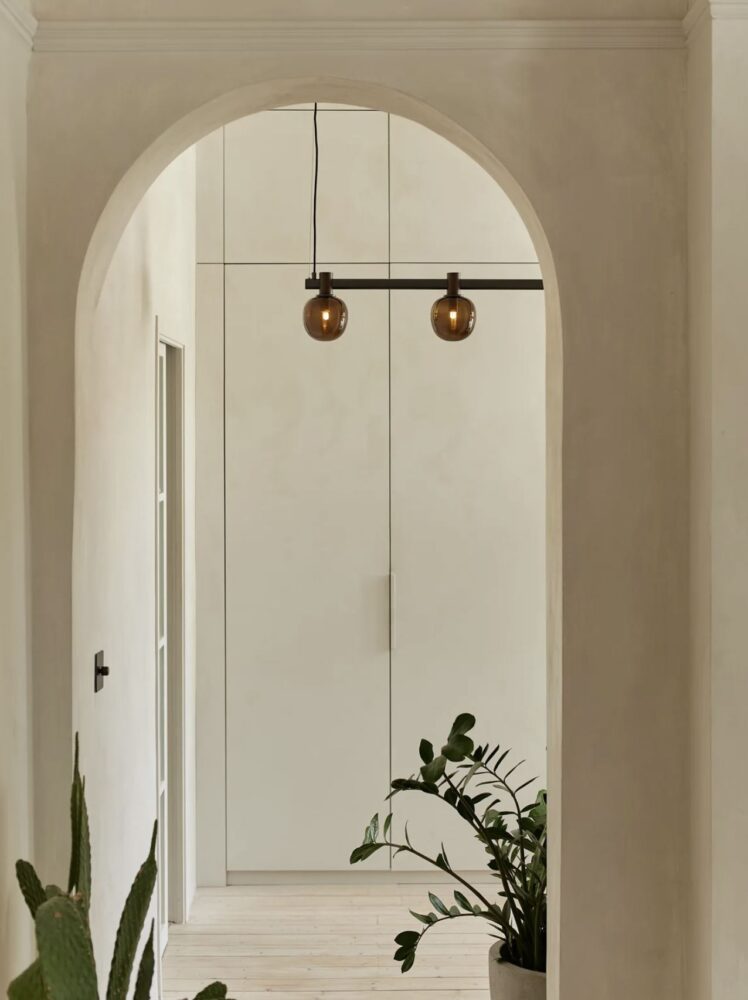
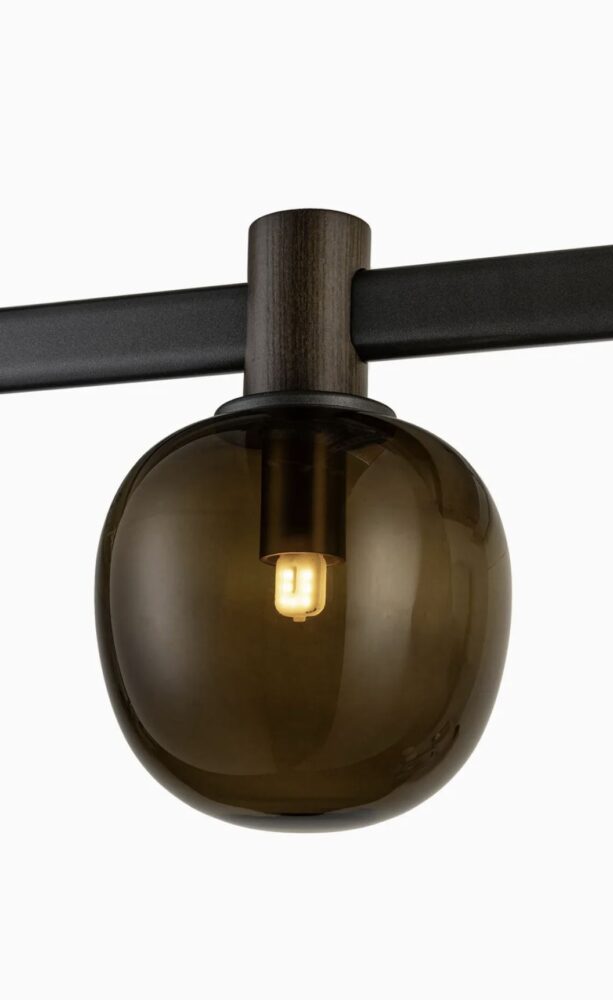
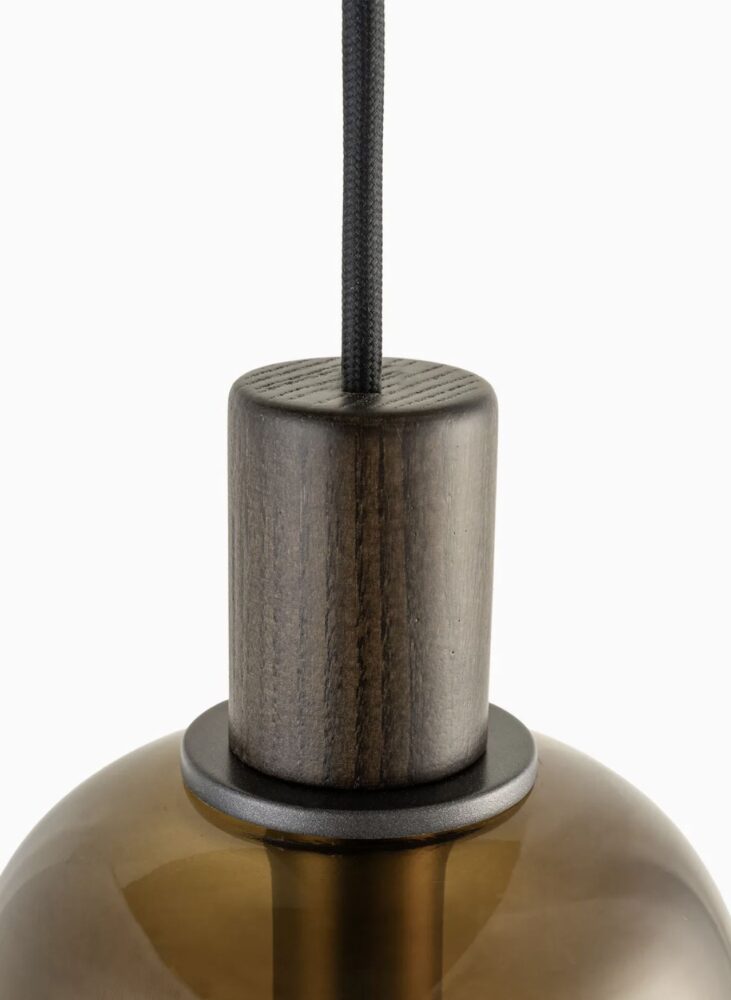
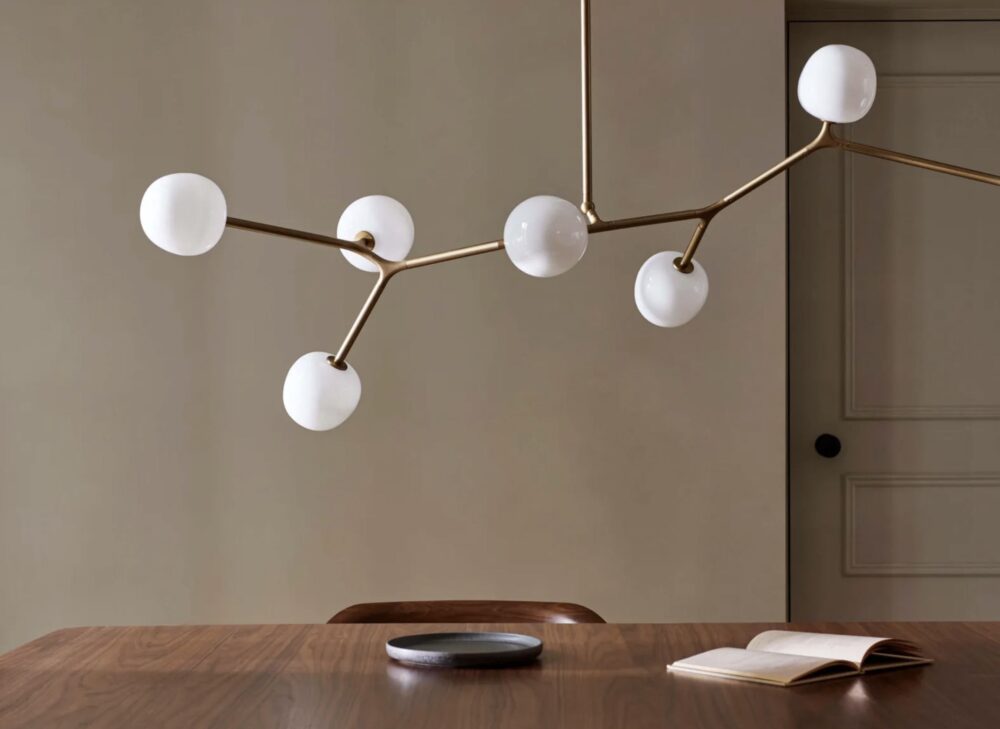
2025: Latest Creations
Irwin has a couple of chairs to be launched by two different British companies in 2025, and both of them were exhibited at the Clockwell Design Week in London, between May 20th and 22nd. The first one is the Caston Chair, created in a brand new partnership with Origin and “a study in form meeting function,” in Irwin’s words. Its clean tubular steel frame delivers structural clarity, while a precisely tailored 3D-knitted sleeve by the aforementioned Camira offers ergonomic support and tactile comfort. The fabric fits snugly to the frame, eliminating the need for traditional upholstery methods and resulting in a tensioned, zero-waste finish. Crafted from sustainable materials, including SEAQUAL® yarn, derived from marine plastic waste, the textile combines high performance with low environmental impact. The item is available with or without arms.
The second chair exhibited at the event is an evolved take on Irwin’s acclaimed Setter collection for Deadgood. The Setter Swivel is a new line of fully upholstered office chairs built for flexibility, comfort, and long-term use. Echoing the original Setter’s bold silhouette, the range is reimagined for the modern workplace, with refined ergonomics and modular construction. The items are available on either a fixed four-star or adjustable five-star base and are fully upholstered with removable covers and separable components.
